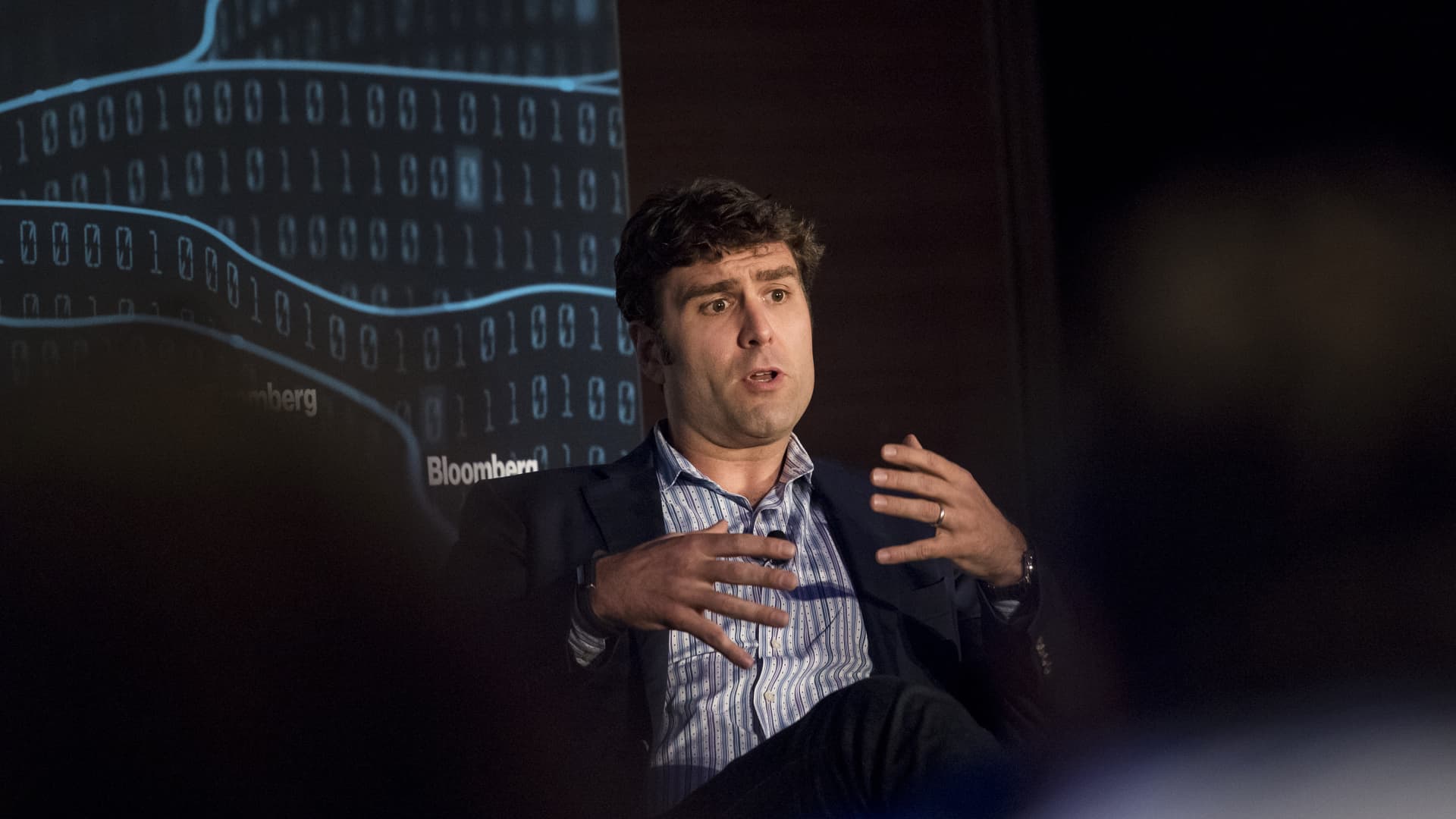The Silicon Valley venture capital firm DCVC invests in all kinds of climate tech companies including geothermal power, aerial methane imaging, advanced nuclear fission reactors, fabrics made out of mycelium, wastewater filtration technology — to name a few.
But there is one category of the climate tech landscape that Zachary Bogue, a co-founder of DCVC does not invest in: Carbon offsets.
“We really don’t underwrite or like to see companies that are using carbon offsets,” Bogue told CNBC in an interview at the end of September in an interview in the Palo Alto office. “We do not look at companies that need to use carbon offsets to make their business model work.”
A carbon offset is a certificate or voucher that a company or organization buys that represents the reduction of a metric ton, or 2,205 pounds, of carbon dioxide emissions. If a company or organization is unable to eliminate the release of greenhouse gasses in their operations, they may purchase a carbon offset to compensate for their emissions.
“There’s been some studies out there that up to 90% of carbon offsets are completely ineffective — have had no impact — which is a tragedy of our time, because big Fortune 500 companies are paying millions of dollars to these carbon offsets, and continuing to emit in the meantime,” Bogue told CNBC. “And these offsets are actually having zero impact.”
The effectiveness of a carbon offset is a contentious issue, but at least one white paper published in April 2021 from the Finnish nonprofit and startup Compensate found that 90 percent of carbon capture projects were ineffective. Compensate has both a non-profit advocacy arm and a company that sells what it deems to be high quality carbon offsets. For the white paper, Compensate analyzed more than 100 nature-based carbon offsets certified by third-party verifiers in the space.
Of the carbon offsets which Compensate deemed a failure, 52% were guilty of what Compensate called “additionality” — for instance, offset credits sold to protect trees that were never in any danger of being cut down. Another 16% of the projects Compensate analyzed were considered a failure because their permanence was considered in jeopardy. For example, coastal restoration projects for mangroves in Bangladesh were jeopardized when floods devastated the country, Compensate said.
So, too, said Bogue of local California projects.
“There were some forests north of here that were the subject of carbon offsets where someone paid millions of dollars to not cut the forest down and — whether or not that’s legitimate, we can leave that aside — because those forests burned down,” Bogue said. “So they actually released the carbon that the company was paying to not have released and that the company emitted.”
DCVC does not invest in companies that use carbon offsets right now, but that is not an indictment against the idea.
“To be clear, I want I want them to exist,” Bogue told CNBC. “I want there to be a carbon tax, I want carbon credits, carbon offsets.”
But there isn’t enough transparency or accountability in the industry, Bogue said. To properly stand up the industry, there would need to be an agency akin to the United States Food and Drug Administration (FDA), according to Bogue.
“There’s a very set and rigorous process that you need to do to take a molecule from discovery and up until you’re dosing a human with it: You need to prove that it’s effective, you need to prove it’s non toxic,” Bogue said. “I would say that the imperative to reducing CO2 is as high of a human health imperative as putting small molecules into our body. Full stop.”
Until then, the industry is too uncertain to be a safe place for the money that DCVC invests on behalf of its limited partners, which are the likes of college endowments and hospitals.
“It needs to be rigorous, and apples to apples and, and verifiable and documentable,” Bogue said. “That’s just not where it is today. That’s where we need to get to, but that’s also why don’t think it’s investable.”
